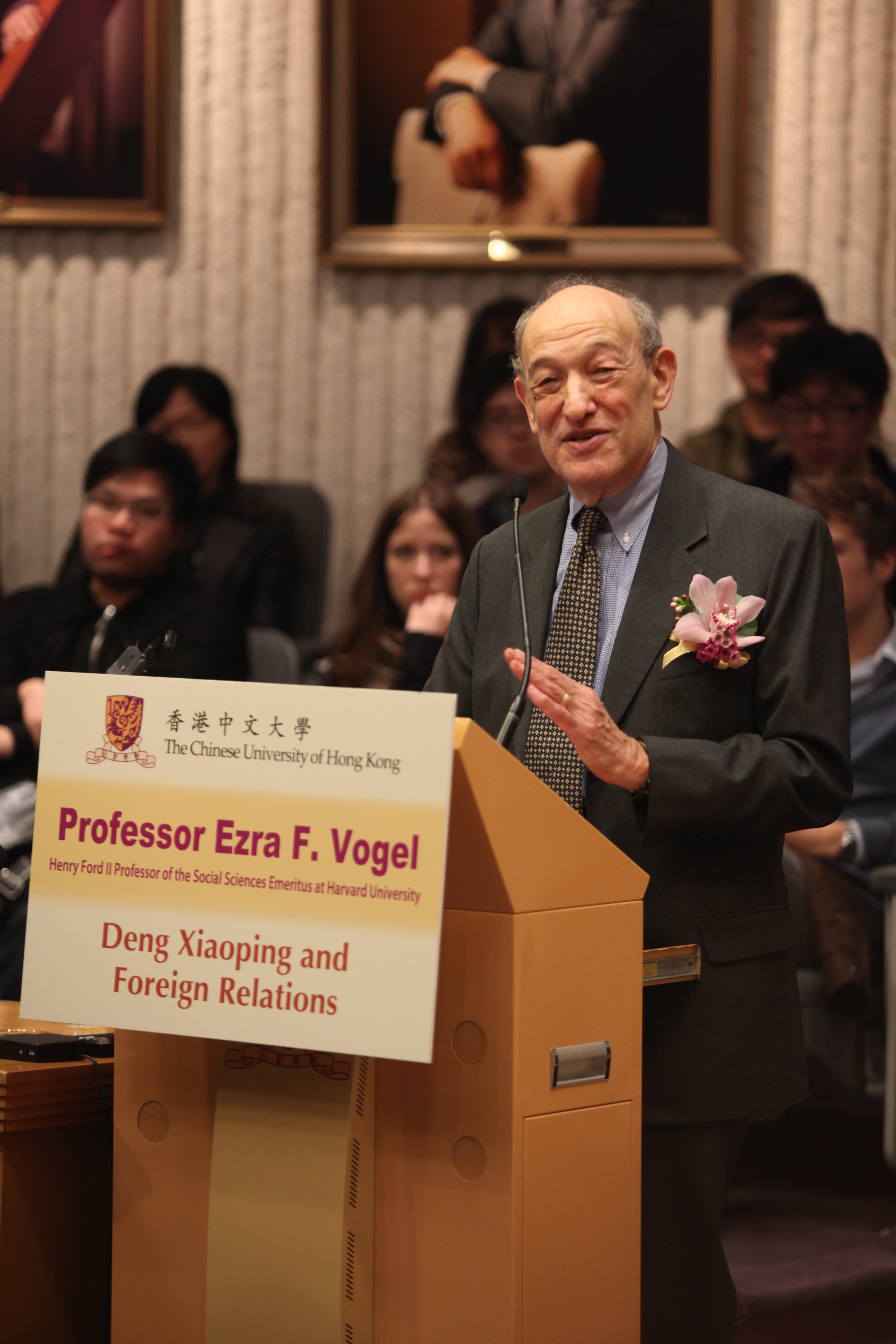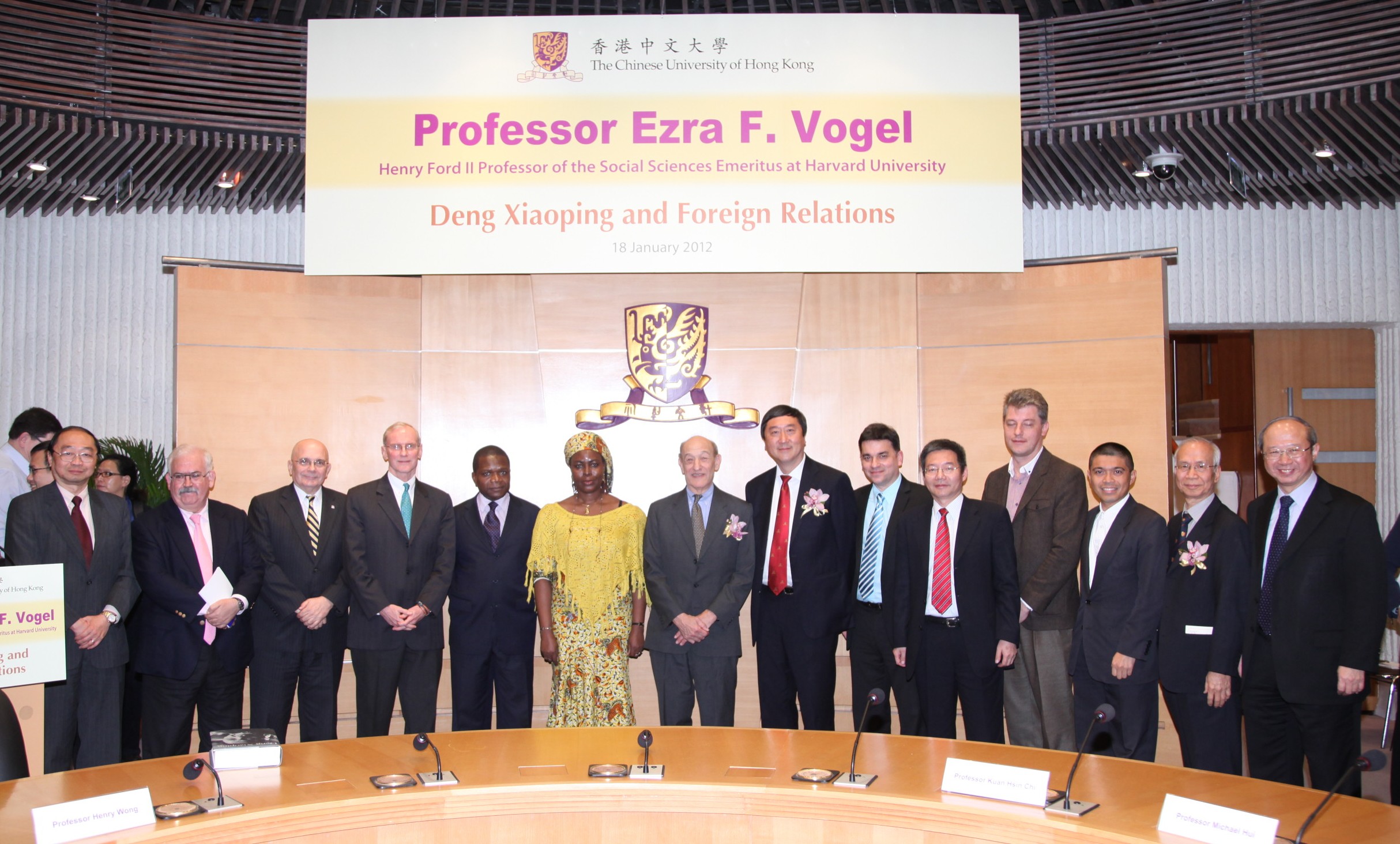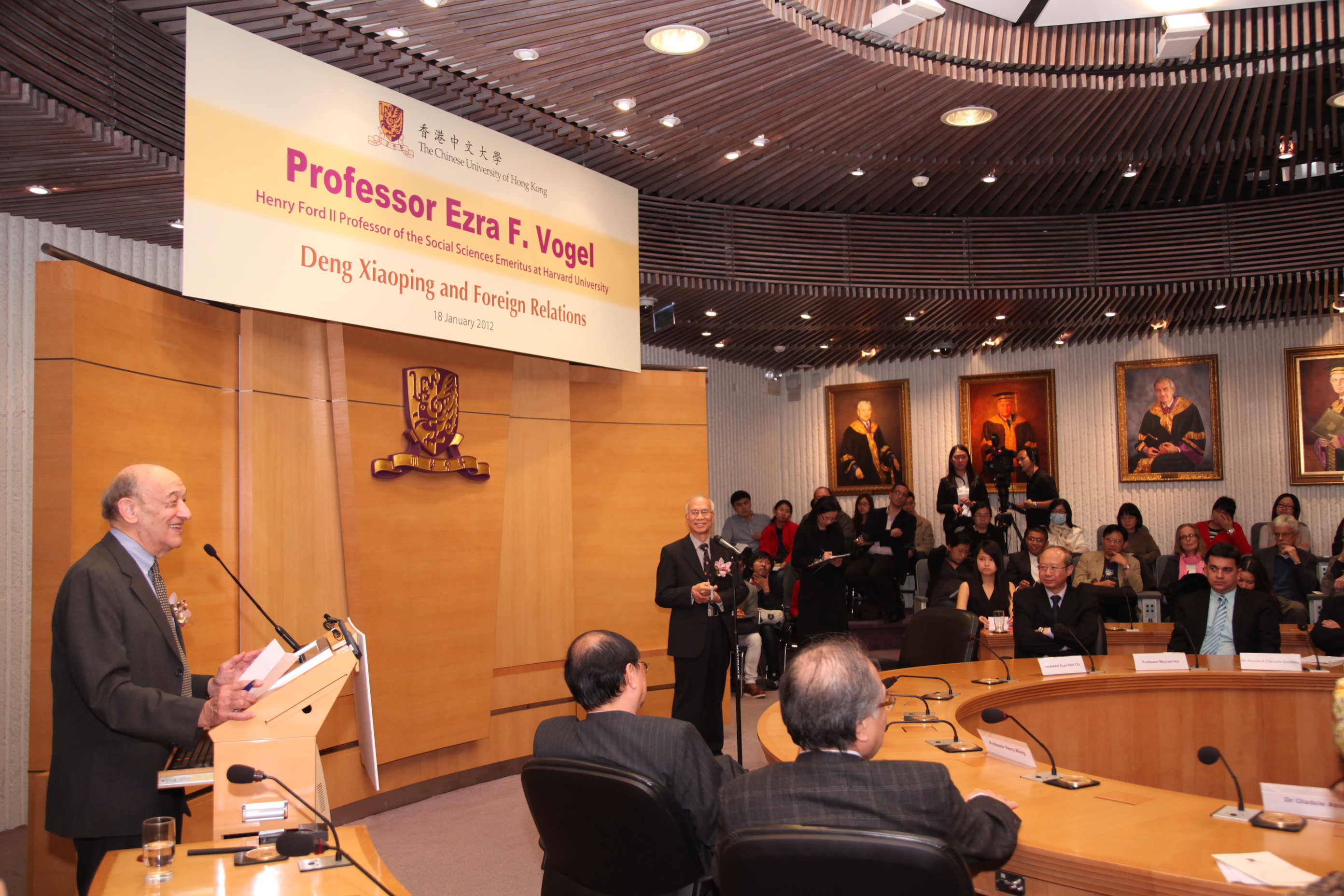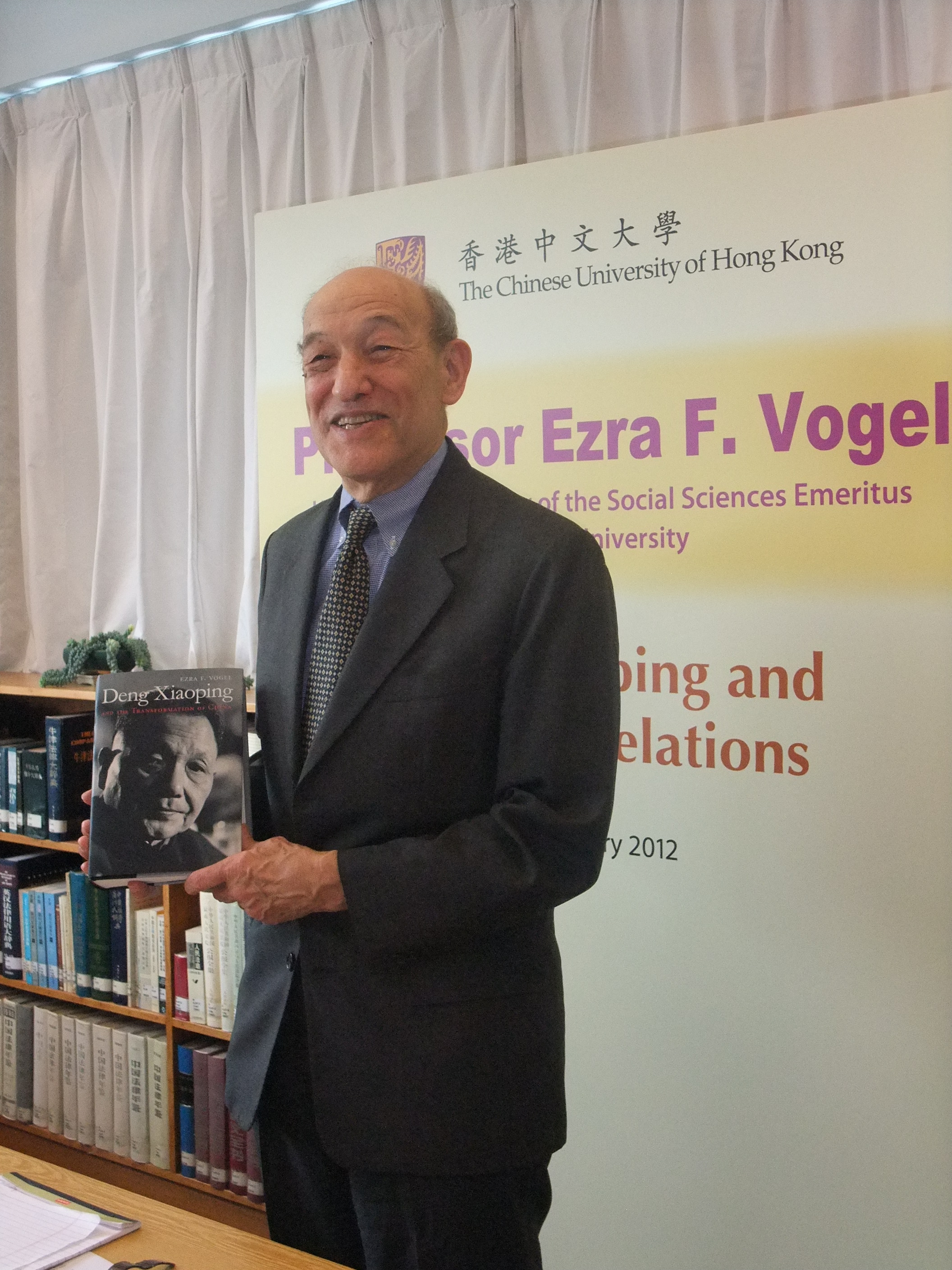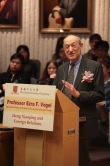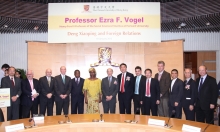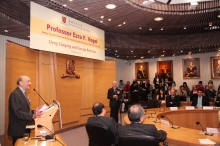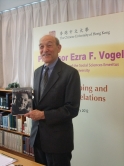CUHK
News Centre
Renowned Scholar in East Asian Studies Professor Ezra F. Vogel Speaks on ‘Deng Xiaoping and Foreign Relations’ at CUHK Today
The Chinese University of Hong Kong (CUHK) has, since its inception, devoted itself to the modernization and promulgation of Chinese culture through studies in the humanities and social sciences. With Chinese Studies as one of its five focused areas of research, CUHK has built excellent network with centres for Chinese Studies in China and overseas for promoting world-class scholarship on China’s culture and society. The University is privileged to have invited Prof. Ezra F. Vogel, Henry Ford II Professor of the Social Sciences Emeritus at Harvard University, who is also an Honorary Graduate of CUHK, to present a public lecture on ‘Deng Xiaopeng and Foreign Relations’ today to enhance understanding on modern Chinese history. The lecture drew a full house of about 250 participants, including academics, students, alumni, members of the public, as well as foreign consuls. Live broadcast was arranged to cater to the extra audience.
Prof. Ezra F. Vogel is a renowned sociologist and scholar in East Asian Studies, who has been working on the book Deng Xiaoping and the Transformation of China for ten years since his retirement in 2000. The book has been regarded as the most authoritative biography and account of Deng Xiaoping and his era. A book review in The Washington Post by John Pomfret, a former Beijing bureau chief for the paper, commented, ‘It pieces together from interviews and memoirs perhaps the clearest account so far of the revolution that turned China from a totalitarian backwater led by one of the monsters of the 20th century into the power it has become today.’; Jimmy Carter, former President of US, said, ‘This is an impressive and important biography of one of the most important men of the 20th century. Deng Xiaoping transformed China economically, politically, and socially. One of the most significant achievements for his and my country was the establishment of diplomatic relations between us. The book provides an excellent account of this historic event.’ The Chinese version of the book will be published in May this year.
In his lecture, Professor Vogel examined how Deng’s experience in France (1920–1925) and the Soviet Union (1926–1927) shaped his later understanding of foreign developments. He traced Deng’s experience in dealing with the Communist Bloc (1952–1966) and his experience in meeting leaders from other countries (1973–1975). He focused particularly on Deng’s relations with Japan, the US, and Southeast Asia in 1978 as he prepared for the policy of opening. A brief account of Deng’s meetings with some of the leading foreigners beginning in 1978 was also given.
Professor Vogel received his doctorate from Harvard in 1958 and has since devoted most of his time to teaching, doing research and performing administrative duties at his alma mater. He has headed Harvard’s East Asian Research Center (1972–1977), Council for East Asian Studies (1977–1980), Program on US-Japan Relations at the Center for International Affairs (1980–1987), and has served on various committees on China and Japan. He was Chairman of the Harvard Committee to Welcome President Jiang Zemin (1998). He currently chairs the advisory board of the Universities Service Centre for China Studies (USC) of CUHK, which houses one of the world’s most complete collections of materials for the study of contemporary China.
More than a sociologist, Professor Vogel is also a public figure, liaising among world leaders, particularly between North America, Japan, mainland China, Hong Kong and Taiwan. He has had good working relationships with high-ranking cadres in Guangdong and has accompanied on several occasions governors of the State of Massachusetts and presidents of Harvard on their visits to China and Hong Kong. His book, Canton Under Communism (1969), won the Harvard University Press faculty book of the year award. He spent eight months in 1987, at the invitation of the Guangdong Provincial Government, studying the progress of the province since it took the lead in economic reform in 1978. The results are reported in One Step Ahead in China: Guangdong Under Reform (1989).
Professor Vogel has visited East Asia at least once a year since 1958 and has spent a total of over six years in Asia. He lectures often in Asia, in Chinese and Japanese. His expertise in Japan is equally admirable. His best seller, Japan as Number One: Lessons for America (1979), has such a wide appeal that it has been translated several times over in Japan, China and Taiwan, apart from translations into French, Portuguese, Indonesian, etc. Since 2000 he has organized a series of conferences between Chinese, Japanese, and Western scholars to work together to examine the China War from 1937–1945.
In recognition of his outstanding achievements, Professor Vogel has been awarded ten honorary degrees. He received The Japan Foundation Prize in 1996 and the Japan Society Prize in 1998. He was elected to the American Academy of Arts and Sciences. In 2008 he received the Harvard Graduate School Centennial Medal for contribution to society.
For more photos, please visit:
https://www.cpr.cuhk.edu.hk/en/events_recap_detail.php?id=48


